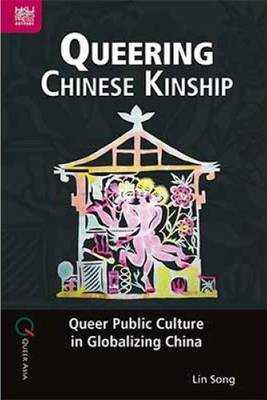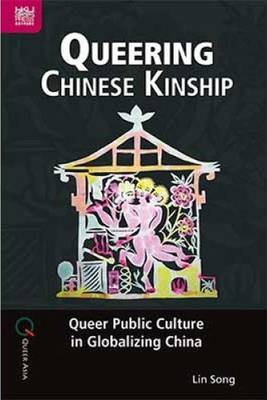
Door een staking bij bpost kan je online bestelling op dit moment iets langer onderweg zijn dan voorzien. Dringend iets nodig? Onze winkels ontvangen jou met open armen!
- Afhalen na 1 uur in een winkel met voorraad
- Gratis thuislevering in België vanaf € 30
- Ruim aanbod met 7 miljoen producten
Door een staking bij bpost kan je online bestelling op dit moment iets langer onderweg zijn dan voorzien. Dringend iets nodig? Onze winkels ontvangen jou met open armen!
- Afhalen na 1 uur in een winkel met voorraad
- Gratis thuislevering in België vanaf € 30
- Ruim aanbod met 7 miljoen producten
Zoeken
€ 133,95
+ 267 punten
Omschrijving
What does it mean to be queer in a Confucian society in which kinship roles, ties, and ideologies are of such great importance? This book makes sense of queer cultures in China-a country with one of the largest queer populations in the world-and offers an alternative to Euro-American blueprints of queer individual identity. This book contends that kinship relations must be understood as central to any expression of queer selfhood and culture in contemporary cultural production in China. Using a critical approach-"queering Chinese kinship"-Lin Song scrutinizes the relationship between queerness and family relations, and questions Eurocentric queer culture's frequent assumption of the separation of queerness from blood family. Offering five case studies of queer representations across a range of media genres, this book also challenges the tendency in current scholarship on Chinese and East Asian queerness to understand queer cultures as predominantly counter-mainstream, marginal, and underground. Shedding light on the representations of queerness and kinship in independent and subcultural as well as commercial and popular cultural products, the book presents a more comprehensive picture of queerness and kinship in flux and highlights queer politics as an integral part of contemporary Chinese public culture.
Specificaties
Betrokkenen
- Auteur(s):
- Uitgeverij:
Inhoud
- Aantal bladzijden:
- 172
- Taal:
- Engels
Eigenschappen
- Productcode (EAN):
- 9789888528738
- Verschijningsdatum:
- 1/03/2022
- Uitvoering:
- Hardcover
- Formaat:
- Genaaid
- Afmetingen:
- 156 mm x 230 mm
- Gewicht:
- 453 g

Alleen bij Standaard Boekhandel
+ 267 punten op je klantenkaart van Standaard Boekhandel
Beoordelingen
We publiceren alleen reviews die voldoen aan de voorwaarden voor reviews. Bekijk onze voorwaarden voor reviews.











